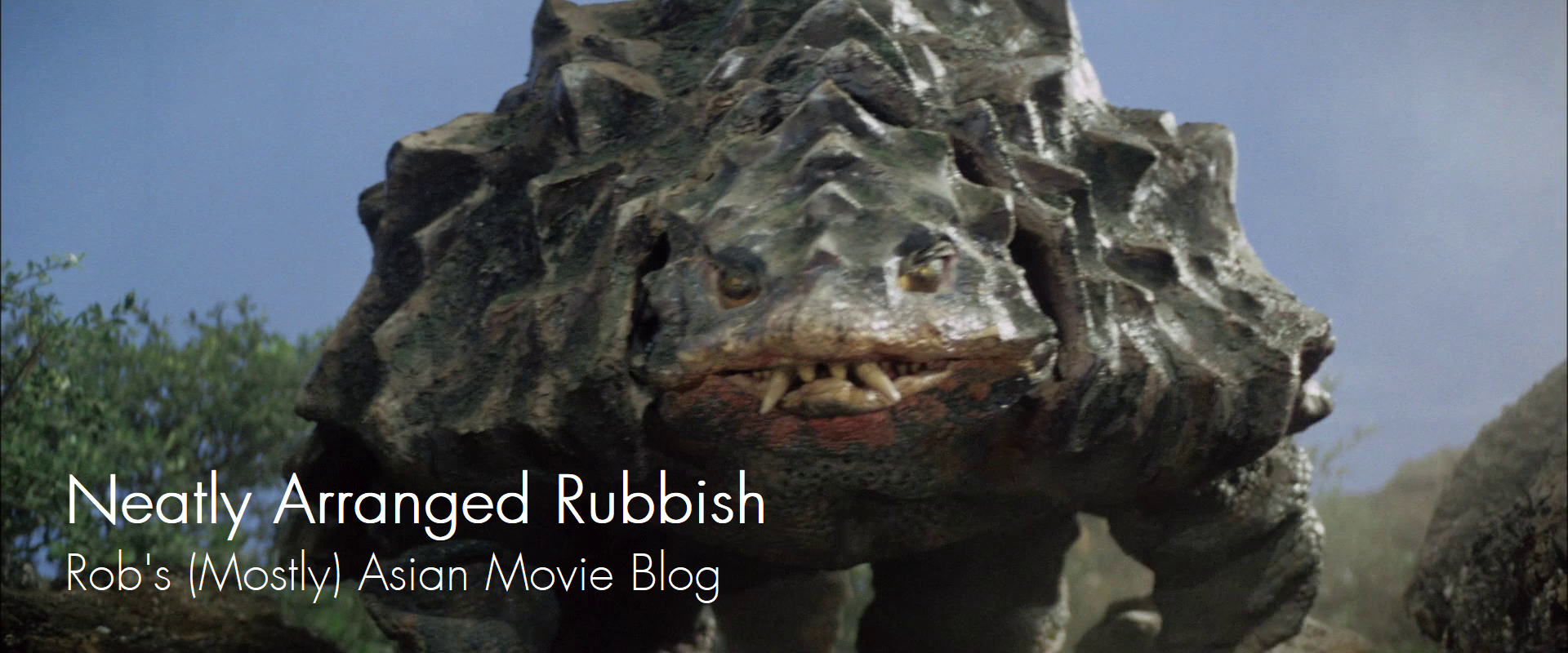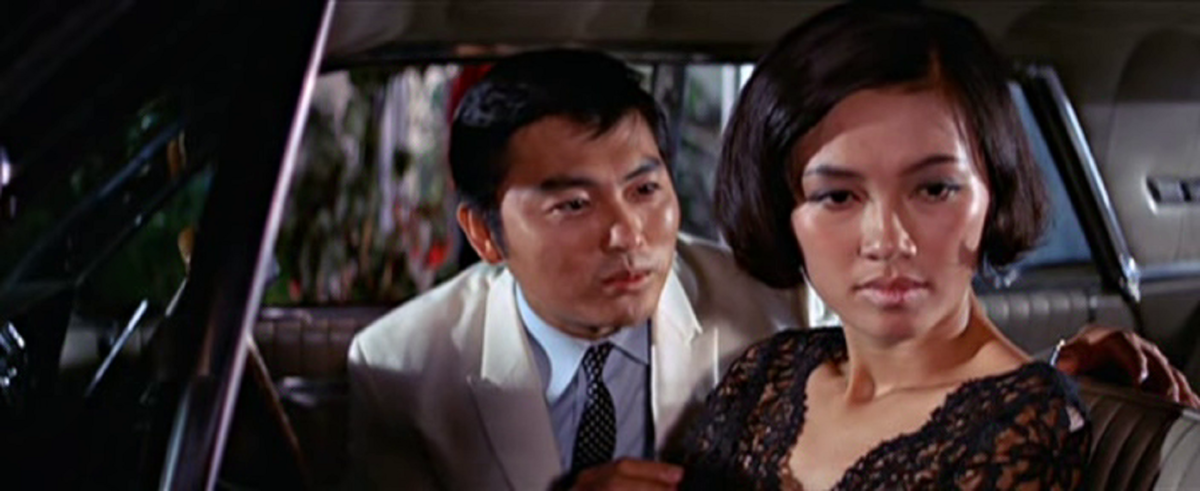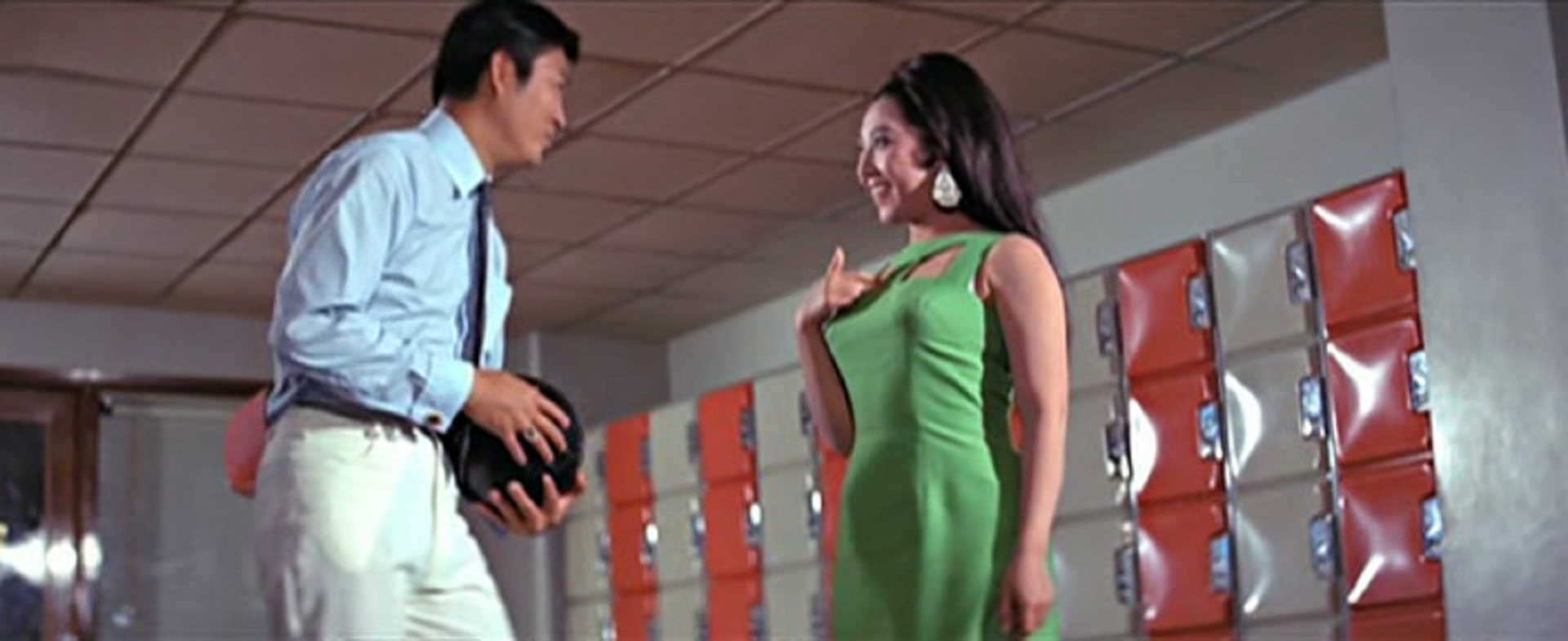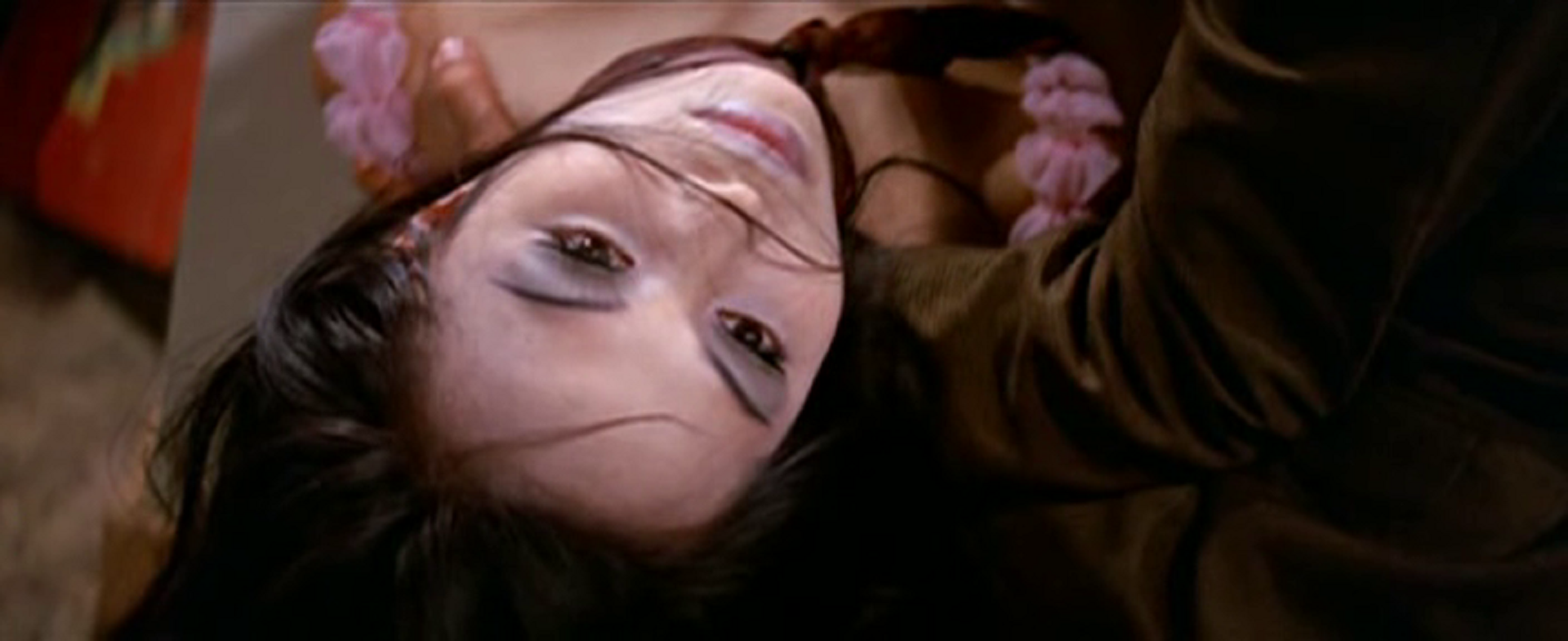Last Updated on September 29, 2020 by rob
Businessman Zhou (Han Ching) has a problem. His prim and proper fiancee Xiulan (Fang Chin) won’t let him have sex. So Zhou resorts to chatting up a succession of easy lays to satisfy his urges. But one by one the women Zhou’s slept with turn up dead – strangled – and when Zhou finds his latest lover choked with his own necktie he realises too late he’s been framed by someone with a grudge. But who? With Zhou in jail it’s up to Xiulan and a crusading lawyer (Li Peng-Fei) to catch the killer and clear his name.
I’ve seen this one at least half a dozen times and it never fails to entertain. You can tell it’s a remake (1964’s The Hunter’s Diary, from the same Japanese director) because the plot seems unusually sturdy by Shaw standards and once all the twists have been revealed it hangs together pretty well. And the characters are endearing. You can’t blame the handsome Zhou for looking elsewhere when the gorgeous Xiulan won’t even give him a shag. Ching’s performance is so much fun in the scenes where he chats up various lonely, flirty women that by the time Zhou finally realises he’s in real danger our sympathies are wholly with him rather than Xiulan’s heartbreak at his infidelities (her advice to him is, I kid you not, “Promise me you’ll see a Doctor”)! It helps too that when Zhou is arrested Xiulan knows instinctively that her man – whatever his weaknesses – is no murderer.
If she’s still for him then we can be too. And the other girls are great. There’s a whole parade here of luscious Shaw beauties in various amusing scenarios. A scene in a cinema foyer where Zhou chats his target up in the most formal manner plays like the kind of thing Tony Leung mercilessly sent up in 1992’s affectionate tribute to Hong Kong cinema, The Legendary Black Rose. My favourite scene is the one with Miss Zhu, a seriously foxy art teacher our hero charms by posing – quite preposterously – as art correspondent for the London Times. “I like sculptural beauty” he declares, so when Miss Zhu strips down expecting him to admire the result in aesthetic terms, only for Zhou to let loose with a wolf whistle she is shall we say, less than impressed. Nakahira’s film flaunts a few bare boobs along the way but like most films with a sexual component what once seemed mildly risque or daring now seems not just dated but downright hilarious.
Not that that’s a bad thing. In fact it’s absolutely part of the film’s charm as are its sometimes old fashioned attitudes toward women’s promiscuity. When a young lady kills herself in the film’s opening scene and her sister tells the police inspector that the dead woman had a lover the cop reacts as if she’d just told him her sister had robbed a bank! It helps too that the women are all up for it – it’s not like Zhou forces himself on anyone or ever behaves obnoxiously – and the film’s light-hearted tone blends well with the mystery element. I liked the way each of Zhou’s seductions is infused with a touch of suspense as he’s shadowed by a secret observer and the film plays fair with the killer’s identity. The clues are all there in plain sight when you look back at it. I also got a big kick out of the distinctive Shaw style in which almost every plot point or character reaction is underscored by a sudden loud blast of music.
There’s a disregard for nuance or subtlety here that some may find crude (actually, it is crude!) but I found invigorating. The opening sequence in which a young girl falls to her death in front of a horrified crowd of onlookers with her sister vowing to the police to track down the man responsible is as sombre as it sounds. But when the film cuts from that to a luridly lit title sequence of Shaw babes coquettishly pouting and posing semi-naked on a couch with come hither smiles scored to a brash, seedy jazz number the difference in tone couldn’t be starker. The film is full of this kind of thing. Musical stings by turns tender, suspenseful, shocking – you name it – are thrown up against each other with a seeming disregard that doesn’t feel reckless so much as downright anarchic and I really enjoyed that. And once Zhou is carted off to jail Fang Ying’s loyal fiancee Xiulan comes into her own as she puts the pieces together and then courageously places herself in harm’s way by flirting with the real killer, allowing him to take her back to his house where another nasty surprise awaits.
The diary of the film’s title is of course Zhou’s account of his various conquests but it’s essentially, as Hitchcock would have called it, a McGuffin in terms of its importance to the plot. Everyone’s looking for it believing it will reveal the killer’s identity but aside from Chou’s excitement at his seductions it’s real significance lies in its unexpected compassion for the unfortunate woman whose suicide at the film’s start kicks everything off. In that sense it reaffirms our initial impression of Zhou, that he may be a bit of a lad but he’s a decent chap at heart, one who pays the price for his escapades and emerges from jail, suitably chastened, into Xiulan’s welcoming arms.



